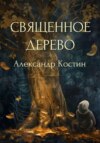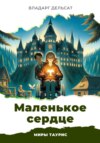Loe raamatut: «English Grammar with Kudjo. Part 4. Понятная и забавная грамматика для детей и взрослых»
Cover designer Roman Lubimov
© Larisa Lubimova, 2024
© Roman Lubimov, cover design, 2024
ISBN 978-5-0064-8661-4 (т. 4)
ISBN 978-5-0062-2872-6
Created with Ridero smart publishing system
Thank you for following Kudjo and me. If you are here, you must have read my previous books of Grammar with Kudjo and you know what to expect.
This book is devoted to the least popular grammar aspects: modal verbs, articles, prepositions and so on. I guess, you have just screwed up your faces at these words. Calm down.
I did try to make this grammar look less tough and more exciting by presenting and drilling it through Kudjo’s adventures and funny quizzes.
Let’s start.

Unit 1
Revision
EXERCISE 1
Put the verb in brackets in the correct form:
1 /See/ Kudjo /stand/ on the abandoned road, Chilly wanted /cry/ but couldn’t.
2 He wished he /can/ run out of the car and join his friend.
3 If only he /can/ open the door!
4 Suddenly the blue light dissipated and Chilly stopped /see/ Kudjo at all in complete darkness.
5 If he /get/ out of the car, he /help/ Kudjo.
EXERCISE 2
Rephrase the sentences using the beginning of a new one in brackets:
1 Chilly kept sitting in the car because he didn’t manage to control it. (Chilly wished he …)
2 The engine didn’t start, the doors didn’t open, the lights didn’t switch on. (Chilly couldn’t make …)
3 It was pitch dark around and Chilly felt scared stiff. (Chilly wouldn’t …)
4 He hammered on the window to break the glass to get out, but it was too strong. (He tried…)
5 Soon Chilly got exhausted and fell asleep. (Having …)
EXERCISE 3
Put the verb in brackets in the correct form and guess the last word of the sentence:
1 /wake/ up in the morning, Chilly couldn’t understand what was going *****.
2 He was sitting in the car with all the doors and windows open, the engine /work/ and the lights /switch/ *****.
3 He got out of the car and rubbed his eyes several times. He /not believe/ it if he /not see/ it with his own *****.

4 He couldn’t help /bark/ in astonishment. There was nothing in front of him. The camp and the road had *****.
5 Chilly wished Kudjo /disappear/ *****.
EXERCISE 4
Fill the gaps in the story with missing words:
What would you have ***** if you had ***** Chilly? Right. He decided to return ***** hoping Kudjo had already come back. Chilly got into the ***** and drove home as ***** as possible. He was looking forward to ***** the door and seeing Kudjo reading a book on his favourite *****.
Arriving home Chilly rushed to the door, opened it and ***** Cuba and Luna waiting for them in the hall. They looked ***** and alarmed. Chilly realised that Kudjo hadn’t returned ***** yet. He’d rather not have explained anything but he didn’t have any other option as the girls waited for him to ***** them everything. Of course, Chilly couldn’t help putting them in the picture. When he ***** talking, the dogs looked even more ***** and troubled. They wished they ***** where Kudjo was and what ***** happened to him.
EXERCISE 5
Find and correct 6 mistakes in the sentences:
1 The dogs immediately started thinking to look for Kudjo but, frankly speaking, none of them knew where to start.
2 Luna suggested to go to the place where there used to be the abandoned camp.
3 Chilly, returned from that place a few hours ago, insisted to look for Kudjo in another place.
4 Cuba kept to whimper and could hardly put forward any idea.
5 It was high time they would have some tea and calmed down.
EXERCISE 6
Choose the correct option:
1 After having some camomile tea Cuba suggested ***** at home and waiting for Kudjo *****.
a staying / returning
b staying / to return
c to stay / returning
2 Luna wished they ***** to the place where Chilly had seen him the last time.
a go
b had gone
c could go
3 Chilly would rather ***** with Cuba, but he knew that Luna would make them ***** anyway.
a to agree / to go
b agree /go
c agree / going
4 None of the dogs remembered ***** Kit for ideas though he seemed ***** some.
a ask / to have
b to ask / to have
c asking / having
5 The dogs were too ***** to notice the kitten ***** the flat.
a excited / to leave
b exciting / leaving
c excited / leave
EXERCISE 7
Translate the story:
Похоже, Кит знал, где искать Куджо. Если бы собаки не были так зациклены на заброшенном лагере, они бы тоже вспомнили про подвал. Кит был уверен, что таинственный синий свет знает, где Куджо сейчас и он надеялся найти синий шар в подвале. Подбежав к маленькому подвальному окошку, Кит остановился как вкопанный. Не веря свои глазам, он залез на дерево.

Окно было наглухо заколочено досками. Жаль, что я такой маленький и слабый, подумал котенок, вздохнул и побежал искать помощи у котов района. Ему пришлось потратить немало усилий и времени, чтобы объяснить каждому коту, зачем ему опять нужно попасть в подвал. К вечеру огромная стая котов собралась около подвала, обсуждая варианты проникновения. Наконец, самый старый и самый мудрый сфинкс предложил просто поджечь деревянные доски…
(продолжение следует)
Unit 2
Modal Verbs of Ability
Before speaking about the modal verbs of ability, let’s remember three important characteristics of all modal verbs:
1. They have only one form, so you cannot add -s, -ed, -ing or make any other modifications.
2. They are used together with main verbs. You cannot put two modals together: Kudjo will can return. Instead of it you can say: Kudjo will be able to return. or Kudjo can return.
You also can’t use auxiliary verbs like do/does/did with modals, because modals themselves already function as auxiliary verbs!
To make the negative form of a modal verb, add not immediately after it: Chilly couldn’t remember anything after that.
To make a question with a modal verb, put it in front of the subject: Could the dogs find him?
3. Never use to between a modal verb and a main verb: We must not to panic.
PRESENT ABILITY
To describe physical and mental abilities in the present as well as the possibility to perform an action, we use can/can’t or be able to / be not able to. In everyday speech, can/can’t are more common.
Kudjo can drive a car far better than Chilly. = Kudjo is able to drive a car far better than Chilly.
Can is also used to express:
Permission (informal). e.g. You can take my dad’s car.
Request (informal). e.g. Can I go out?
By the way, could expresses a more polite request. e.g. Could you help us?
Prohibition (informal). You can’t tell anybody about it.
Note: am/is/are able to would be unusual when we are commenting on something that is happening at the time of speaking:
Look! Kit can stand on his front legs! (not: Look! He is able to stand on his front legs!)
If the present ability is surprising or involves overcoming some difficulty, we can also use is/are able to:
Despite his injury Chilly is able to drive a car.
We don’t usually use be able to with stative verbs (such as see, hear, understand, believe, etc.): Cuba can’t understand what is going on. (not: Cuba isn’t able to understand what is going on.)
We cannot usually use be able to with a passive:
This road can be used to cut the distance. (not: This road is able to be used to cut the distance.)
EXERCISE 1
Choose the correct form (in two sentences both options are possible):
1 Listen! Our kitten is able to /can bark now! When in Rome, do as the Romans do.
2 Are you able to / Can you look for Kit? I haven’t seen him since the morning.
3 The dogs have been looking for Kit but he can’t / isn’t able to be found anywhere.
4 The dogs can’t /aren’t able to see their kitten anywhere, which makes them worried a lot.
5 The kitten can’t / isn’t able to live on his own. He is too little.
6 Who do you think they can /are able to find first: Kudjo or Kit?
Fixed phrases with the verb can:
Can is used with some verbs to create idiomatic expressions widely used by native English speakers:
1. can’t wait – to be excited about something
Ex: Cuba can’t wait to see her French friends soon.
2. can’t stand – to strongly dislike something
Ex: Chilly can’t stand cats in Lion.
3. can’t bear – to strongly dislike something because it makes you unhappy
Ex: Luna can’t bear to be away from Kudjo longer than a week.
4. can’t take it – cannot tolerate something
Ex: Luna can’t take her parents’ control anymore.
5. can’t be bothered – to have no interest in something
Ex: Luna knows she should be home now but she can’t be bothered.
6. can’t win – life is difficult
Ex: Sometimes no matter what you do in life, you can’t win.
7. can’t help it – to have no control over something
Ex: Cuba can’t help it, she finds cheese irresistible!
8. Can you imagine? – it is amazing
Ex: Dogs can have a kitten as a pet. Can you imagine?
9. No can do. – it cannot be done. It’s impossible.
Ex: Chilly refused to do it, he wanted to help, though. No can do.
10. What can I say? – I have no comment right now.
Ex: Everybody is shocked. What can they say?
11. Can it! – Shut up!
Ex: Luna can’t stand the words «Can it!»
12. as can be – as much as possible
Ex: The dogs were sure that everything would be fine with Kudjo. He is as smart as can be.
EXERCISE 2
Put one of these fixed expressions in the gaps:
1 The friends ***** worrying about Kudjo and Kit.
2 They have been trying very hard to find them but *****.
3 Meanwhile, the cats are trying to put out the fire as hard *****.
4 They have just managed to extinguish it without any firefighters. *****?
5 The wall is black with grime but the window is open now. *****?
6 To make things worse, Chilly has caught a cold. If only he would take medicine! But he *****.

PAST ABILITY
To talk about ability in the past, we use could/couldn’t or was/wasn’t/were/weren’t able to:
There are some situations when we tend to prefer one or the other.
1. Use be able to for a specific accomplishment (in contrast to general ability): Despite being a poor driver, Luna was able to park the car well.
Remember: If an action was realised or carried out in a particular situation in the past it is expressed with the help of was/were able to, but when could is used with reference to the past, it denotes only the ability or possibility of performing an action.
However, the negative couldn’t is possible in all situations.
Chilly couldn’t help Kudjo that night. = Chilly wasn’t able to help Kudjo that night.
In such situations we can substitute was/were able to with managed to or succeeded in: Cuba was able to persuade Luna.= Cuba managed to persuade Luna.= Cuba succeeded in persuading Luna.
2. Using could/couldn’t is more common than was able to for:
• verbs of the senses and of thinking (hear, see, smell, taste, feel, think, believe, remember, understand): It was pitch dark but Chilly could see that place.
• with the words almost, nearly and hardly: Chilly was so shocked that he could hardly speak.
It’s not wrong to use was able to in these situations, it’s just a little less common.
EXERCISE 3
Complete the sentences using could or was/were able to in positive or negative forms:
1 After the cats put out the fire, Kit ***** get into the cellar.
2 It was pitch dark in the cellar, but Kit ***** see well (all cats can see perfectly in the dark).
3 Unfortunately, he ***** find what he had expected to.
4 He mewed hoping to attract the blue ball, but the answer was a deafening silence.The only sound Kit ***** hear was the sound of his own tail tapping on the floor.
5 He ***** hardly believe that all his efforts had led to naught.
6 Having looked for the blue ball everywhere, the kitten ***** find it and had to come back home without any good news.
To talk about ability in the future, we only have one option – will/won’t be able to.
The dogs won’t be able to do anything without Kudjo.
To sum up, we use be able to instead of can:
• after another modal verb (will/would/must/might/shall/should).
They might be able to find him in the forest.
• if we want to use an -ing form or a to-Infinitive.
They enjoy being able to share all their feelings with him.
They used to be able to fight for each other.
• if we want to use Perfect Tenses.
They haven’t been able to find either Kit or Kudjo yet.
EXERCISE 4
Put the correct form of be able to in the story about Kit’s abilities:
1 He didn’t use ***** climb trees when he was little.

2 Now he loves ***** climb up any heights.
3 He ***** just ***** reach a squirrel hollow, which frightened the squirrels a lot.
4 When he gets older, he ***** catch birds.
5 He wants ***** do something useful for Luna and other dogs.
6 If he were bigger and stronger, he would ***** find Kudjo.
EXERCISE 5
Fill the gaps in the story with missing words:
Disappointed and ***** Kit finally returned home, which made Luna ***** with joy. If only they could ***** Kudjo as well! The kitten explained that he had ***** to find the glowing blue ball to be able to look for Kudjo with its help. While ***** to Kit, Chilly remembered seeing the glowing blue light in front of Kudjo standing on the ***** motionless. Bingo! The kitten was absolutely right! If they can ***** the blue light ball, it will definitely ***** them to Kudjo! The dogs got so excited that they forgot one ***** thing – they still don’t know where to look for the ***** either. It’s time they worked out the strategy.
EXERCISE 6
Find and correct 6 mistakes in the sentences:
1 They have been trying to work out the strategy since yesterday and have just able to do it.
2 They remembered canning to see the glowing blue ball whenever they were in trouble or were about to get into trouble.
3 Chilly came up with the idea of provoking a difficult situation so that the ball could help appearing.
4 The idea sounded so brilliant that Chilly wished Kudjo can be proud of him.
5 The only thing they haven’t can to do yet is to decide what trouble to create for themselves.
6 Finally Luna managed setting up a «trap» for the ball.
EXERCISE 7
Choose the correct option:
1 Luna suggested getting lost in the forest but ***** which one.
a cannot to decide
b could not to decide
c couldn’t decide
2 The dogs ***** choose the place for a “trap” until Chilly put forward his plan.
a couldn’t to
b hadn’t been able to
c haven’t been able to
3 Chilly’s plan was to pretend to get lost in the place where he had seen Kudjo the last time. He easily ***** the girls into doing it.
a managed to talk
b could talk
c managed talking
4 Luna objected to Kit going with them but he ***** persuade her to take him.
a was able to
b managed
c could to
5 His best argument is that he ***** attract the glowing ball better than the dogs.
a can to
b is able to
c manages
6 It was the argument nobody ***** resist.
a was able to
b couldn’t
c could to
EXERCISE 8
Translate the story:
Ночью никто не мог уснуть, думая о предстоящей авантюре. Поэтому утром все были невероятно сонными и едва смогли заставить себя позавтракать.

Хотя и завтраком это было назвать очень сложно – немного собачьих сухариков и много крепкого кофе. Да, да, собаки тоже иногда пьют кофе.
После кофе они смогли наконец-то полностью открыть глаза и обсудить окончательные детали операции.
Только сейчас собаки стали понимать как сильно им не хватает Куджо, его уверенности, решительности и сообразительности. Если бы только он сейчас был с ними!
Видя, что Луна и Куба вот-вот расплачутся, Чилли быстро скомандовал всем взять свои рюкзаки и отправляться в путь. Собаки решили добираться до места на электричке, а дальше идти пешком. Никто из них не мог и представить, что их ждало впереди.
Неприятности начались сразу же, как только они сошли с электрички. В то время, как они стояли на платформе, решая в какую сторону им лучше пойти, Луна открыла свой рюкзак, в котором всю дорогу спал Кит, и внезапно громко взвизгнула. Котенка в рюкзаке не было…
(продолжение следует)
Unit 3
Modal Verbs of Obligation
MUST
The modal verb must has only one form. We only use must to talk about the present and the future. For missing forms of the verb must we use its equivalent to have to.
Must expresses:
1 Strong obligation, necessity, duty to do something. We generally use must when the speaker has decided that something is necessary.
Must expresses an obligation from the speaker’s point of view, an obligation imposed by the speaker; it is used to give a strong personal opinion: The dogs believe they must keep it a secret.
As must expresses a strong obligation, we do not often use it in face-to-face conversation as it can sound impolite and often inappropriate. We often use should and ought to as an alternative to must as they express a subjective (often moral) obligation felt by the speaker, but the obligation is weaker than with must
You should treat your neighbours with more respect and never bark at their cats.
2. Prohibition; refusing permission
Must is used in negative sentences when it is forbidden/prohibited to do something; you are not allowed to do something; it is against the rules/laws:
The dogs were astonished when they saw: «You mustn’t go by train if you haven’t got a ticket (even if you are a dog).»
3. Command, urgent request, command in public notices or documents:
You must do as you are told.
In the present we can use both forms: must and have to.
Remember the difference in sentence formations: we use auxiliary do/does for to have to while making questions and negative sentences: Do the dogs have to buy train tickets? – No, they don’t have to do it.
Must is similar to have to but we use have to (not usually must) to say what someone is obliged to do: Luna has to let her parents know where she is. (She is obliged to do it, it’s not her intention)
Mustn’t and don’t have to are completely different:
You mustn’t do something = it is necessary that you do not do it (so don’t do it):
You don’t have to do something = you don’t need to do it (but you can if you want):
EXERCISE 1
Complete the sentences with must/mustn’t or have to/has to/don’t/doesn’t have to.
1 The dogs ***** get into the train again to find Kit.
2 They ***** worry. Kit is clever enough to find the way back home.
3 Anyway, the kitten ***** be left alone on the train.
4 Does everybody ***** return or does Luna alone ***** look for the pet?
5 The dogs have decided they ***** do everything together.
6 Whatever they do, they ***** separate.
7 They got into the train again and suddenly saw the poster: «If you have lost each other on the train, you ***** panic. Use our radio to make an announcement.»
TO HAVE TO
When we talk about past obligations or necessity, we use had to. The dogs had to come back.
Future obligation can be expressed by must or made more precise with will have to.
They will have to get back to the forest as soon as they find the kitten.
The form have to is also used for Perfect Tenses.
They have just had to get into the train again.
They had had to do it very quickly before the train left.
They will have had to return to the forest before dark.
Must has no infinitive, gerund or participle forms. So when necessary, we make this form with have to.
Chilly hates having to waste time.
He never used to have to take care of pets.
Having to look for Kit, the dogs might waste a lot of time.
EXERCISE 2
Complete the questions with the correct form of have to/must and answer them:
1 Is there anything you ***** do for your job or study which you hate?
2 When was the last time you ***** catch a train?
3 Name two things you ***** do every day.
4 What do you hate ***** do?
5 What did you use to ***** do when you were little?
6 What would you ***** do if you were shipwrecked?
7 What will you ***** do to save money for a rainy day?
EXERCISE 3
Complete the sentences using the proper verb and the correct form of must/have to: tell, bark, come back, run, get away, face, pinch, look for
1 The dogs ***** along all the aisles looking for the kitten but couldn’t find him anywhere.
2 Luna was extremely furious because of ***** Kit a dozen times that he ***** from her.
3 ***** the kitten in every corner of this long train, the friends were getting angrier and angrier, more and more exhausted.
4 They had already lost any hope to find the kitten on the train and thought of ***** to that platform when Chilly made a sudden stand.
5 He couldn’t believe his eyes and ***** himself to make sure it was not a hallucination.
6 There was somebody’s sweater on a berth and Kit enjoying such a balmy sleep on it that Chilly ***** loudly to wake him up.

7 When Kit realised what had happened, he got so embarrassed that was ready to do anything to avoid ***** Luna.
SHOULD AND OUGHT TO
Should and Ought to are very much alike in meaning and are often interchangeable. They are very common in spoken English. They have only one form; ought is always followed by the to-infinitive.
Should and Ought to express:
1. Mild obligation, moral or mild/weak duty, responsibility (in this meaning ought to is preferable).
should and ought to are less emphatic than must and have to:
with should the person has some choice on whether or not to act, but with must he has no choice.
Kit should apologise. (= it would be a good thing to do)
Kit must apologise. (= he has no alternative)
2. Advice, desirability, recommendation. (in this meaning should is more common).
We are talking about what is a good thing to do or the right thing to do: Luna thinks Kit should apologise to all the dogs.
3. Should (ought to) have + past participle can mean something that would have been a good idea, but that you didn’t do it. It’s like giving advice about the past when you say it to someone else, or regretting what you did or didn’t do when you’re talking about yourself.
Kit should have stayed with the dogs.
Shouldn’t (oughtn’t to) have + past participle means that something wasn’t a good idea, but you did it anyway.
He shouldn’t have run away.
EXERCISE 4
Chilly is keen on giving advice. Complete the sentences using the proper verb and the correct form of should/shouldn’t: move, use, take, catch, make, trust, yell,
1 You ***** dogs. They always know who to stay away from.
2 If you hear weird noises in the night, you simply ***** weirder noises to confirm your domination.
3 If you find a toilet in your dream, you ***** it.
4 You ***** at cats, lean in close and whisper, it’s much scarier.
5 If you are not happy where you are, you *****. You are not a tree.
6 If you drop a cactus, you ***** it.
7 You ***** decisions without eating first.
TO BE SUPPOSED TO
We can use be supposed to + infinitive instead of should/ought to to talk about an obligation to do something. It is commonly used in spoken English to express a less strong obligation which is frequently ignored: Kit is supposed to be with Luna all the time.
We can use be not supposed to’ to express prohibition:
He is not supposed to run away again.
TO BE TO
To be to is a modal expression, whose meanings are close to those of modal verbs and expressions denoting obligation: must, to have to, should, ought to.
to be to is used in the Present and Past Simple Tense.
To be to expresses:
1. Obligation or necessity arising out of an arrangement, an agreement or plan.
Luna is to come back home by midnight.
to be to in the Past Simple + Perfect Infinitive shows that the action had been arranged but did not happen. (was/were to have done)
Kit was to have stayed in Luna’s bag all the time.
to be to in the Past Simple + Simple Infinitive does not show whether the action was or was not carried out and, on the other hand, it is the only way to show a fulfilled action. (was/were to do)
Chilly was to arrange the trip.
2. Strict orders, formal commands or formal instructions.
3. A strict prohibition. May not, can’t, are not to, must not – are arranged in increasing order of severity, «must’ being an absolute prohibition: Kit is not to leave the bag until he is allowed to do it.
EXERCISE 5
Luna’s scolding Kit. Complete her sentences using the correct form of the verb in brackets with to be to and to be supposed to:
1 You ***** /obey/ me.
2 You ***** /stay/ in the bag as I had told you before the trip.
3 You ***** /let/ me know about all your intentions.
4 You ***** /tell/ me that you were going to leave the bag.
5 You ***** /have/ any secrets from me.
6 You ***** /share/ all your ideas with me instead of doing everything on your own
7 You ***** /be/ always with me so as not to make me worry big.
EXERCISE 6
Fill the gaps in the story with missing words:
Having ***** Kit, the dogs were able to resume looking ***** Kudjo. The friends had to hurry because it was getting ***** and they were supposed to come back home before nightfall. Feeling guilty and miserable, Kit kept ***** in Luna’s backpack. If he ***** run away, the dogs wouldn’t ***** wasted so much time. If the dogs hadn’t ***** so much time, they would have already ***** Kudjo. If they had found Kudjo, everybody would be ***** and cheerful. He must do something to ***** the situation. He ***** find Kudjo. If he does it, everybody will ***** him. But he can’t do it while sitting in the ***** and he isn’t allowed to get out of it. It’s totally out of the question. Suddenly it dawned on him that he ***** be able to get away in the backpack. Luna forbade him to leave her *****, but she didn’t forbid her bag to *****. What a smart kitten!
EXERCISE 7
Find and correct 7 mistakes in the sentences:
1 Luna should left Kit at home but she didn’t.
2 The dogs must to return so as to find the kitten.
3 Kit was supposed to stayed in the bag all the time.
4 Fortunately, the dogs hadn’t to come back home because they had found Kit.
5 Luna has just must to punish her pet.
6 Kit must not to do anything on his own!
7 He doesn’t have to disobey Luna anymore, otherwise, he’ll be punished.
EXERCISE 8
Choose the correct option:
1 Luna ***** at the kitten. He is too little, after all.
a shouldn’t shouted
b shouldn’t have shouted
c mustn’t have shouted
2 Chilly believes Kit *****.
a will be to be grounded
b was to have been grounded
c was to have grounded
3 Cuba thinks Kit ***** be so naughty and stubborn.
a shouldn’t
b needn’t
c oughtn’t
4 Kit doesn’t think the dogs *****to worry about him so much.
a ought
b should
c must
5 The kitten didn’t use ***** obey anybody before.
a to have
b to must
c to have to
6 Luna ***** admit not bringing up her pet at all.
a just must
b has just had to
c has just musted
7 She ***** him some basic rules of behaviour but she didn’t.
a had to teach
b must have taught
c should have taught
EXERCISE 9
Translate the story:
Кит должен был найти Куджо первым, чтобы доказать всем на что он способен. Он решил передвигаться, не вылезая из сумки. Он же обещал Луне оставаться в рюкзаке и он должен сдержать свое слово. Так как собаки горячо спорили в какую сторону идти, никто не заметил, как рюкзак тихонько откатился от них и пополз по тропинке в лес.
Он полз и представлял себе, как все удивятся и обрадуются, когда он вернется вместе с Куджо. Все наконец-то признают, что он не маленький беспомощный питомец, а полноправный член команды. Замечтавшись, котенок не заметил, как случайно свернул с тропинки и оказался в глухой чаще. Споткнувшись о поваленное дерево, Кит кубарем покатился на самое дно глубокой волчьей ямы. Очнувшись, он с ужасом понял, что самому ему оттуда не выбраться. Становилось темно и холодно. Было больно и очень-очень страшно.
(продолжение следует)










